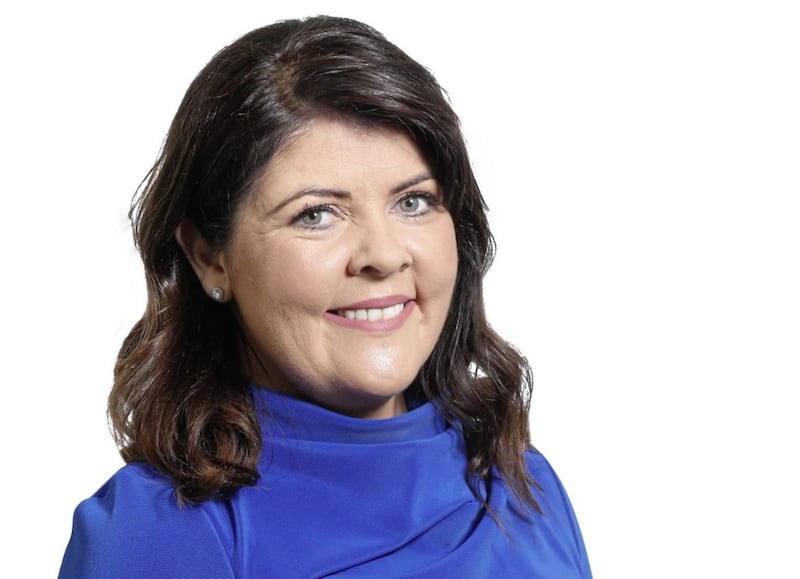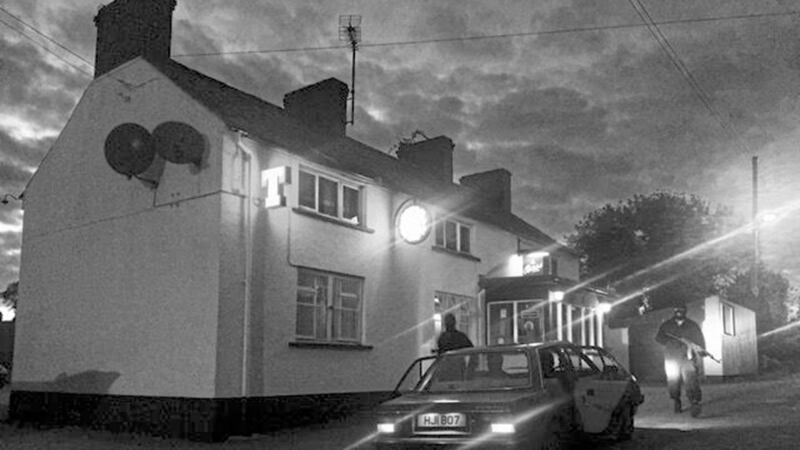I STARTED to write this column five times this week. Each time, I lost heart in the subject matter I had chosen to write about. Why? On Tuesday night I watched the fourth episode of Spotlight on the Troubles: A Secret History, and on Wednesday night I watched No Stone Unturned, the documentary made by local company Fine Point Films, which exposed collusion between the security forces and loyalist paramilitaries in the Loughinisland massacre.
I found both programmes poignant for different reasons. The events described in Spotlight on Tuesday prompted me to ask questions about what I was seeing on the news at the time. "But why Mummy?" I asked – I was nine years old – only to be told, "Never mind." My parents wanted to protect me from it.
I was 16 when loyalist gunmen murdered six men in The Heights Bar in Loughinisland, Co Down. I watched No Stone Unturned on Wednesday night, in tears at the senseless bloodshed and loss of life. Although I didn’t grow up during the darkest days of the Troubles, I grew up in the early 90s in south-east Tyrone. We thought that what was happening around us was normal. It was far from it.
The hatred someone must have felt to put a mask on, lift a gun and walk into a pub and shoot at people’s backs indiscriminately, knowing that people would die, doesn’t bare thinking about.
The overriding message from both programmes this week was the search for answers by all families who were directly affected with all aspects of what went on here. The pain in their voices, in their faces, was captured brilliantly by the programme makers.
Every few months the victims of the Troubles are discussed in the media. Every time truth and reconciliation are mentioned the debate inevitably turns into a discussion about ‘them uns and us uns’, ‘orange and green’. The heart of the matter is ignored. Thousands of people's lives were torn apart by the actions of others, for a particular cause which most victims wanted nothing to do with.

When are we going to wake up and realise that what went on in this part of the world for decades was a very dirty war? Disgusting things happened on all sides. We don’t know the half of it. It remains hidden, not spoken about, redacted, has been lost in an ‘accidental’ fire, or because of ‘an asbestos problem’.
If we want to move forward, the last thing we need is a blame game. We need honesty, disclosure, transparency. All of which take integrity to deliver. That’s where our so-called political leaders are failing us. Resolution requires self-examination, critique and asking extremely difficult questions of ourselves which may provide answers we don’t want to hear. Who is going to take the lead and deliver on this? We can’t spend another generation going around in circles.
As I watched the opening of the excellently made No Stone Unturned, a contributor commented on the hope that that game of football between the Republic of Ireland and Italy at the World Cup in 1994 was providing. The possibility of a permanent cessation to violence was real at that point in time and people had dared to hope for a better future.
Twenty five years on, we are caught in the middle of a shambolic Brexit process and we seem to be even more polarised as a society.
Equally, I don’t think that we are educating ourselves enough about our past. We are guilty of the ‘not in my back yard’ attitude. If it didn’t happen to us, we don’t want to know. We are also guilty of the ‘whatever you say, say nothing’ approach. Some things are never to be spoken of. Some people may ask what is the point of documentaries which discuss the past, if they only succeed in opening up old wounds?
We have allowed wounds to fester for long enough. Will we ever talk to each other and, more importantly, listen to each other about our abnormal past, and do so in a respectful manner?
I want to be hopeful of what the future will bring, but I can’t justify any feeling of hope at the moment. It saddens me to say that the only thing we can be sure about at present is the promise of even more uncertainty. I would love to be proved wrong on this.









